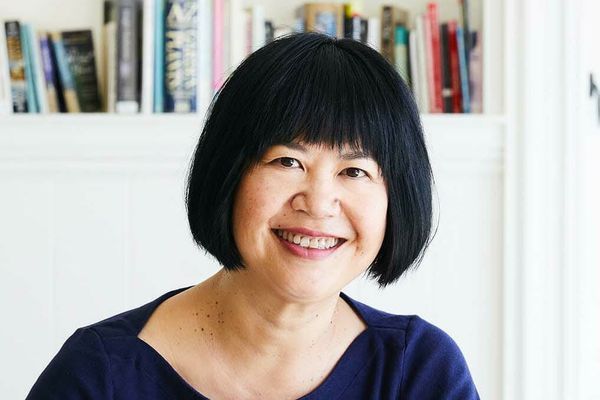When we sit down to eat, we are not usually thinking about how the food before us got onto our plate, let alone the history, culture, and traditions associated with it. But by exploring these themes, Food Writing not only serves to enrich our understanding of the food itself and all that is connected to it, it also makes us appreciate every meal we eat that much more! As award-winning cookbook author Andrea Nguyen points out, “Without stories and context, food doesn’t taste that good.”
Before delving into your Food Writing Competition entry, get Andrea’s tips and insights below!

You’re a cook, a James Beard award-winning cookbook author, a food writer and editor, and a consultant, with a particular emphasis on Vietnamese food. How did you first get started in the food world? Were you always as interested in writing as you were in cooking?
My first food writing gigs were monthly Asian restaurant reviews for Korean American Journal, a free weekly newspaper in Los Angeles. I had a fulltime job at a university then, and this was a fun side thing. I always wanted to write a Vietnamese cookbook that reflected my family’s experience as immigrants. There were Viet cookbooks, but they often spoke about Vietnam with regard to being a distant place. For me, as a third culture person having been born in Vietnam and raised in America, I looked for a book about the Vietnamese American food experience. I wrote a book proposal, and a powerful literary agent told me that I couldn’t get a contract because I wasn’t on television. So I built a website, Viet World Kitchen, to share my knowledge.
One day, I met the owner of a publishing company that published excellent cookbooks, many of which were on Asian cuisines. He was interested, so it turned out I didn’t need an agent or to be on television to get a book contract!
How does your family history and background influence and inform your work?
Because I don’t live in Asia, I write from a diaspora perspective. I like to eat and cook so that’s how I know my heritage. My family’s experience as refugees in America grounds my interest in answering this question: How may food be used as a lens for understanding culture? That applies to my own understanding of who I am. It also applies to people who just are curious and want to learn about cultures that are not theirs.
Moreover, food is also about storytelling. Without stories and context, food doesn’t taste that good.
Food Writing is a gateway to exploring everything from culture and history to the environment and social justice, and much more. What advice do you have for young writers in picking a topic and approach?
Pick one pillar that interests you most. Focus on that, then dive deep to build your knowledge. Soon, you’ll realize that you’ve touched on many other topics and issues because you’ll have constructed a multidimensional, cross-disciplinary understanding. For example, investigating the history of carrots may lead to you to explore how they are prepared in different cultures, how they have evolved over time according to taste and market preferences, and why commodity carrots are sold in certain neighborhoods while ‘artisanal’ carrots are available in others.
What are you looking for in a winning Food Writing entry?
First of all, the basics of good writing: clearly constructed sentences, a beginning and end, minimal typos. Your writers know the drill.
Good food writing hooks the reader and keeps the person engaged to the end. I learn by reading. Sometimes, what I learn is simply a remarkable turn of phrase, or a description of a food experience that’s uncommon. Excellent food writing tells us a bit about ourselves and our relationships. It’s about humanity somehow.
The pandemic has made us more aware than ever of how central food is to nearly every aspect of our lives. How do you think the changes and upheavals of the past year are being/will be reflected in food writing in the future?
Many people learned to cook during the pandemic, while others improved on some specialized skills (sourdough bread!). Other people hoarded shelf-stable ingredients (beans!). I’m curious about the breadth of those experiences. What did people learn? Will that knowledge and experience stick for the long haul, or will people return to their pre-pandemic lifestyles and forget about this period of solitary culinary confinement?
What is your favorite thing to cook right now? To eat?
Vegetables. I’ve always enjoyed members of the plant kingdom, but for personal and environmental health, I now cook up plant-forward meals. I won’t give up meat, but I just eat small amounts of it.





